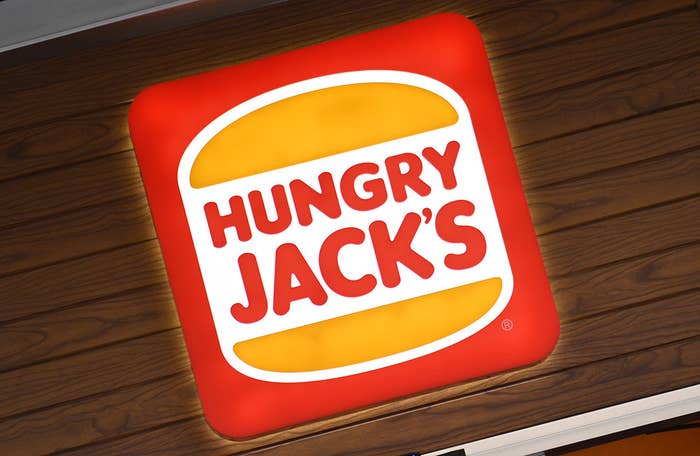
The government has paid fast food chain Hungry Jack's at least $176,000 to take on interns under a program in which young people are paid as little as $4 an hour.
The fast food store is a host organisation with the PaTH internship program, a voluntary government program for unemployed Australians aged 17-24. Internships last from 4 to 12 weeks, with interns working up to 25 hours per week. Companies that host interns get a $1,000 "incentive payment" for each intern they take on.
The government pays interns $200 a fortnight, or as little as $4 an hour, on top of their welfare payments. Host organisations can also receive the youth bonus wage subsidy of up to $10,000 for each intern they later employ.
At the end of January, 176 young Australians had done PaTH internships with Hungry Jack's, and nearly 4 in 5 (79%) ended up employed by the fast food company.
Hungry Jack's did not respond to questions from BuzzFeed News, including about the hours worked by interns, before deadline. The company had previously advertised for 15-hour per week internships, which amounts to $6.66 per hour.
Other PaTH interns have found themselves filling shelves. 127 interns at 25 different companies — including supermarket giants Coles and Woolworths — have had "shelf filler" in their occupation description.
There are few limitations on what positions can be considered internships. The government's guidelines on PaTH internships specify only that an internship must not involve nudity or be in the sex industry, or involve illegal activity, or involve income or funds from gambling that the Department of Jobs and Small Business deems unacceptable, or be a placement the department has advised is not acceptable.
In response to a question on notice from Senate Estimates, the department said that participants "co-design the internship with the [job provider] and host business to match the participant's skills, interests and experience with the host business' expectations and requirements".
Australian Council of Trade Unions secretary Sally McManus has criticised Hungry Jack's for employing PaTH interns instead of paying workers.
The program has enjoyed mixed success in achieving its goal of getting unemployed young Australians into work.
Six months after completing an internship, close to half (48%) of interns were still receiving welfare payments. Thirty per cent were not declaring earnings.
In total, by the end of January, 8,913 young people had done internships and 63,570 had taken part in at least one aspect of the PaTH program, which also includes an employability skills training component. Two-thirds of the total participants obtained a job placement.
Minister for jobs and industrial relations Kelly O'Dwyer told BuzzFeed News PaTH was an "effective program in getting people off welfare and into work with more than 43,000 participants getting a job".
"Young job seekers in employment services need a chance to show potential employers what they can do," O'Dwyer said. "Without PaTH internships (which are voluntary) most young people receiving unemployment benefits would not be competitive when applying for available jobs. They would not get a foot in the door."
The department had estimated that it would need 18,000 to 20,000 host organisations to sign up in order to meet its target of 30,000 internship placements per year. By the end of January, 3,933 organisations had signed up.
Nearly one-fifth — 709 of those 3,933 — of host organisations are retail outlets. 36 host organisations are supermarkets.
In the February round of Senate Estimates, it was revealed that a company called JWM Communications had taken on 17 interns without employing any of them. At least two other organisations have hosted 10 or more interns without offering any of them jobs.
Of those two, the department reviewed one and concluded that it did not breach the PaTH program requirements. The other one is currently under review.
O'Dwyer said host businesses needed to have reasonable prospect of employing the intern after the internship finished, and they had to agree that existing workers would not be displaced or have their hours reduced.
At the end of January, the government had spent $15.6 million on the internship aspect of the PaTH program. It had spent $169.2 million on the youth bonus wage subsidy, and $225.7 million on the program all up.
The PaTH program is expected to cost $789.3 million over the four years to July 2022.
Have you done a PaTH internship at Hungry Jack's or another fast food restaurant? Contact the reporter at hannah.ryan@buzzfeed.com.
